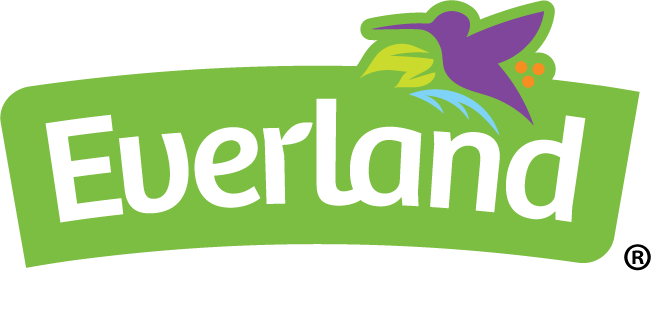7 Nutrition Tips for Healthy Vegans
by Melissa Hansen
Not all vegan food is necessarily healthful. For breakfast, you could eat a dozen different flavors of vegan ice cream, followed by a stack of pancakes drenched in syrup for lunch, and a dinner of cakes, cookies, meringues, and cheesecakes. It's wonderful that we can make or buy all of these delicious vegan delicacies, but no one would mistake them for being healthy.
A healthy diet must include putting plants at the center of our meals, but this does not imply that we must forego pleasure or flavor. And if we choose whole foods, legumes, nuts, fruits, spices, herbs, and some of the world's 20,000 edible plants, we can experience a tremendous boost in our health while also enjoying some delicious flavors. Here is a list of foods that we should all strive to consume daily for maximum health.
Protein
The first thing that vegans are frequently asked is, "Where do you acquire your protein?" This is somewhat surprising given that protein is found in practically every food we consume. Of course, certain sources are better than others, but it is not difficult to meet the RDA as a vegan.
Tofu, tempeh, vegan sausages produced from pea or soy protein, such as Linda McCartney or Richmond Meat-Free; lentils, chickpeas, black beans, baked beans, and edamame; seeds, nuts, and nut butter; quinoa, oats, rice, and grains are some of the most excellent sources. Protein may be found in vegetables as well!
A typical day's eating that surpasses protein requirements could be as follows:
12g Oatmeal with a sprinkling of almonds or seeds
24g hummus and falafel wrap with three-bean salad
30g Veggie sausages with potatoes, peas, and broccoli
Calcium
Milk does not have a monopoly on calcium, just as meat does not have a monopoly on protein! Consume plenty of calcium-rich beans and greens, such as black turtle beans, kidney beans, soya beans, kale, watercress, okra, and broccoli. Calcium may also be found in sweet potato, butternut squash, and tofu, and if you snack on dried figs and almonds, you'll get a calcium boost. Plant milk, including milkshakes and yogurt, are frequently fortified with it as well.
Iron
Although iron deficiency anemia is not rare, research suggests that vegetarians and vegans are no more at risk than meat-eaters.
Begin your day with oats or a cereal that is already enriched with iron. Sprinkle some nuts and dried fruit on top, and you could just have met your daily need before you leave the house! Edamame beans, lentils, chickpeas and beans, tofu, tempeh, quinoa, blackstrap molasses, watercress, kale and other dark green leafy vegetables, nuts, sesame seeds, and dark chocolate are all excellent sources of iron.
Consume lots of vitamin C to aid iron absorption, and avoid drinking coffee or tea with your meal, which might limit absorption.
Omega-3 and omega-6 fatty acids
Our bodies can produce almost all of the fats we require for healthy tissue function, but there are two that we must obtain from the diet, and hence they are known as Essential Fatty Acids.
Omega-6 fatty acids are abundant in green vegetables, seeds, nuts, cereals, and most vegetable oils. It is quite easy to gain enough omega-6 on a balanced vegan diet, but this fat competes with omega-3 for usage in the body, so we must ensure that we get enough omega-3 every day. Leafy green vegetables (Brussels sprouts, kale, spinach), walnuts, rapeseed oil, ground flaxseed and flaxseed oil, soya beans, and tofu are the finest sources.
Iodine
Iodine is difficult to get correctly since too much or too little can cause thyroid disorders. Small amounts can be found in nuts, bread, fruit, vegetables, and beans, but the best plant sources are seaweed and iodized salt. However, the amounts of iodine in seaweed can vary greatly. Brown seaweeds can be high in iodine. Therefore eating them once a week should suffice. Those who dislike seaweed and need to minimize their salt intake can think about taking a supplement.
Vitamin B12
This is the one vitamin that is difficult to obtain while following a vegan diet. It is found in animal products, although bacteria are produced within the animals rather than by the animals themselves.
Vegans can acquire B12 via yeast extract, nutritional yeast (called nooch), morning cereals, and fortified plant-based kinds of milk. However, it is recommended that anyone following a vegan diet take a vitamin D pill to get enough of this crucial vitamin.
Vitamin D
Vegans who suffer from acute fatigue are frequently deficient in vitamin D. This isn't simply a vegan issue; many people suffer from vitamin D insufficiency due to avoiding the sun. On the other hand, Vegans have a little disadvantage because we obtain less vitamin D in our diets. Make sure you have a consistent source of vitamin D. Spend as much time as possible outside in the sun, and look for dairy-free margarine, morning cereals, and bread that is fortified with it.
Of course, everyone is unique, and some people have specific dietary needs (for example, pregnant women, athletes, people with chronic illnesses, or those who have vitamin absorption issues). You should consult a GP or a qualified nutritionist if you have special dietary or health problems.
This article was written by Melissa Hansen, a seasoned writer with contributions to niche BC outlets like Epic Firms, Forever After, and Bridgewell Group. When she is not crafting content, Melissa enjoys her time with a hot cup of coffee in one hand and an inspiring book in the other.


